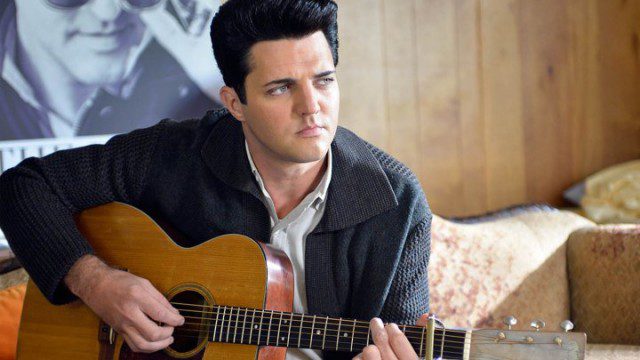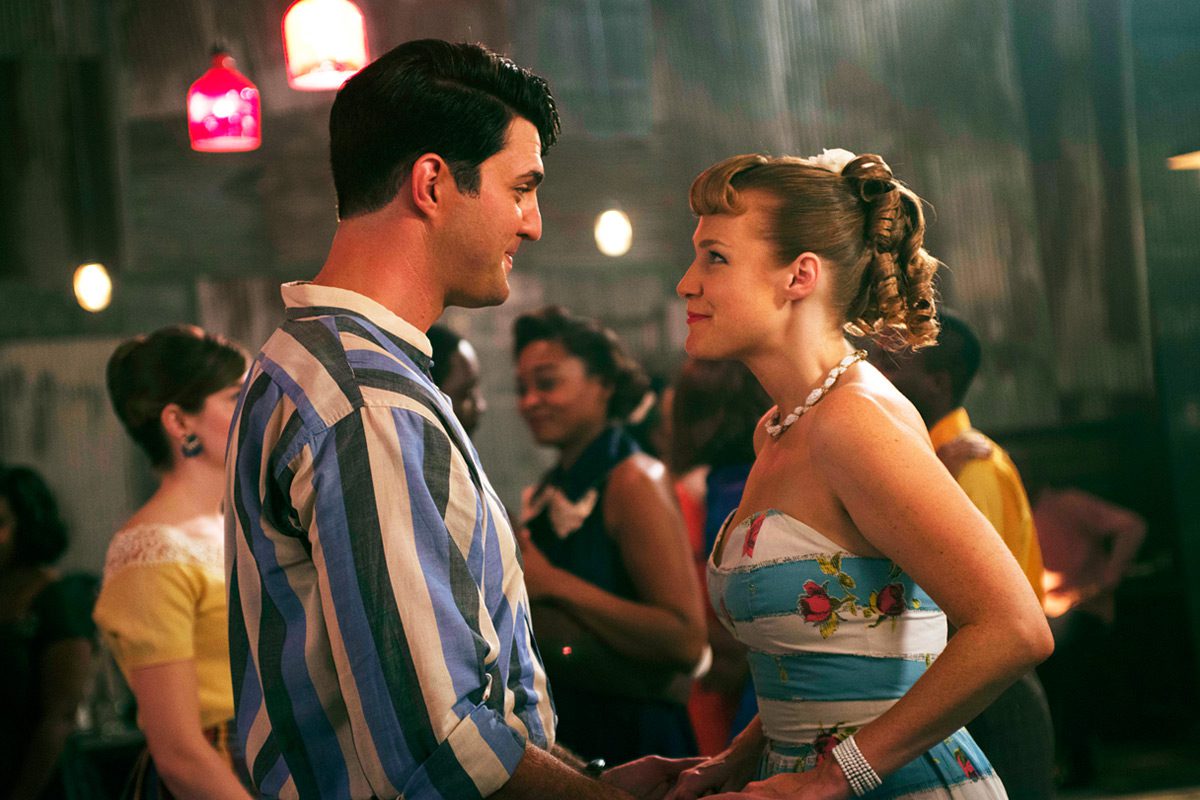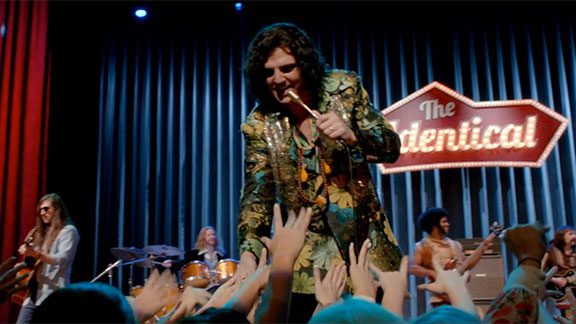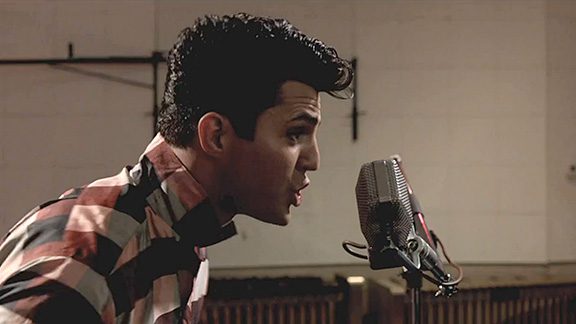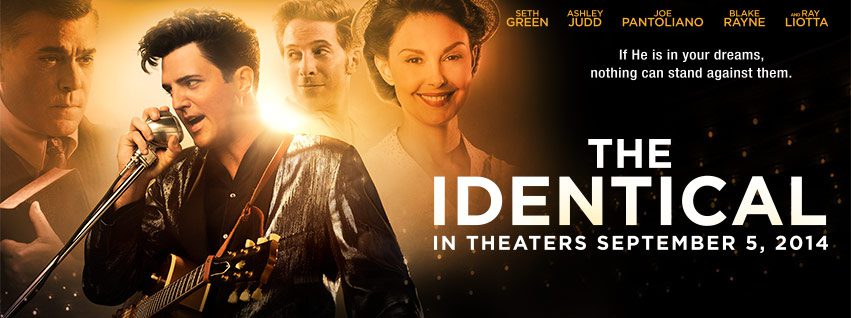Elvis Presley is remembered as one of the most popular entertainers of all time, “the King of Rock and Roll”, and a fallen idol, but before he conquered the world, he was the second born son, Jesse Garon, the elder sibling-and identical twin of the singer-came into the world a stillborn, leaving Elvis an only child in a humble Southern home. It’s not hard to imagine how much the absence of that brother weighed on Elvis over the years, the strange sense of burden and guilt it placed on his conscience.
It also makes for a uniquely fascinating hypothetical. What talents might that deceased brother have had? He could have turned out to be as gifted a musician as Elvis was–or a handsome bore barely able to hold a tune or keep a steady job. If he had been the former, somewhere in the middle or especially an equal talent, what would he have made of his brother’s enormous success and fortune?
Directed by Dustin Marcelino, The Identical isn’t about Elvis directly, but it’s a scarcely veiled play on his mythology that imagines a world where a person very similar to Elvis was born along with that twin brother. It’s in the midst of the Great Depression and a desperately out of work father with two newborn sons hatches the idea to keep just one and give the other to a charismatic pastor Reese Wade (Ray Liotta) and his wife (Ashley Judd), who have seen their repeated attempts to have one of their own fail (they chalk it up, of course, to not having received the Lord’s blessing).
His wife is rightly outraged at the very suggestion of parting with one of her babies; the pastor and his wife are initially quite reluctant. And yet he’s able to convince all of them that it in those hard times it’s for the best, and the young couple unthinkably parts ways with their own flesh and blood (they even bury an empty shoebox to make his premature passing more believable).
Flash-forward a couple decades and the son who stayed with his parents grows up to be the legendary Drexel Hemsley. Known as “The Dream”, his appearance on the scene stuns his estranged twin, Ryan Wade (both are played by Blake Ryan) who was raised by a man who expected him to walk the same path in life and strongly discourages him from music and other sins. Wade was never told that he’s adopted or that he has a sibling, which makes his dead-ringer resemblance to the famous star and his seeming ability to peer into his thoughts and predict his next move all the more confusing.
Only thing he knows for sure is that he wants something more than what his stern father expects of him. So he drops out of religious training, marries a nice girl (she’s played by Erin Cotrrell), and does a fine job of doing nothing in particular for years until he enters a competition performing Drexel Hemsley’s songs. With his unfair advantage of essentially being Hemsley, he trounces all the other acts and rapidly becomes a national sensation playing venues as “The Identical”. Watching him belt out those tunes is the next best thing to seeing Hemsley himself.
Even in a scene where the two brothers are in the same place (Hemsley is one of the judges at the competition, staring intently from behind his sunglasses at his twin), they never meet. The entirety of The Identical keeps them separate and the bona fide rockstar sibling a mysterious and unexplored character. This elusive figure at once feels too specific and too generic; a clueless outsiders’ conception of stardom (Hemsley has a croon and the hip-shaking dance moves like Elvis, and a wardrobe like Jim Morrison or Slash).
At one point someone mentions The Beatles and Elvis and you can’t help but wonder why the movie would replicate seemingly everything about Elvis yet still insist on referencing him needlessly. If he does exist even in this story that would make Hemsley a shamelessly derivative hack, which doesn’t seem like it occurred to anyone involved.
The Identical is nothing if not a flat and affectless picture, devoid of cynicism or inspiration with a Sunday school class wholesomeness that can put you on the defensive. Written by Howard Klausner, it’s building the whole time to a very heavy-handed finale with important life lessons to share about finding God’s plan for all of us. To that end the screenplay just dully hums along while retaining enough innocence that a person can gaze at an exact duplicate of himself without ever seriously wondering if they might be related.
With a sermon of this significance to tell, Klausner cluelessly misses other opportunities like having them ever speak to each other (which could have happened while leaving the general spirit of the ending intact). And why include the fact that Reverend Wade is pro-colorblind equality in a time of segregation or tease around the edges of early rock and roll breaking down barriers between different groups if you’re not really going to do anything with it?
The most elusive and frustrating mystery of all is the underwhelming presence of Blake Ryan. This is his first feature film. If he’s cast appropriately for the part it’s only because his resume includes years spent as an Elvis Presley impersonator (he was the World Champion in 2000) before-much like Ryan Wade does in the story-wondering what he could be when not imitating someone else and starting his own group. He’s fundamentally a singer, not an actor. Ray Liotta, forcing himself into a counter-intuitive role, is quite good as always (same goes for Ashley Judd). And Joe Pantoliano as the mechanic who offers the young wayward man a job at his shop is an immensely enjoyably likable presence with some genuinely funny moments.
Even Seth Green, though the Southern inflection he chooses can sound a little wise-ass at times, plays it fairly straight and is more endearing than he ever seemed capable of being. With Ryan, there’s nothing to seriously delve into. He has little to bring to the table beyond his singing chops and his willingness to sport some truly bad hairdos. In some ways everyone else in the cast transcends the material, even if slightly. Ryan, by contrast, is the material in all its bland and immediately forgettable straightness.

